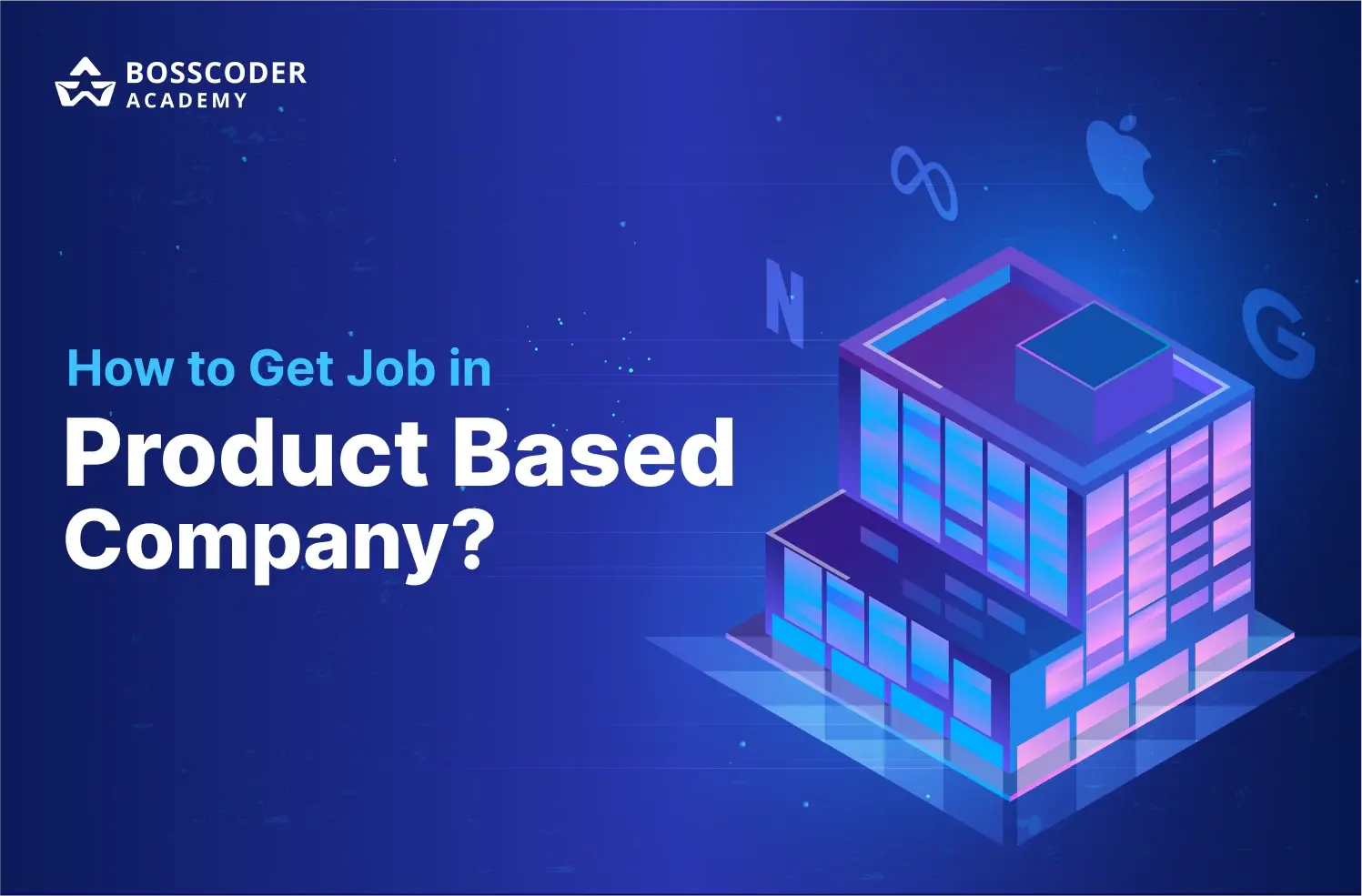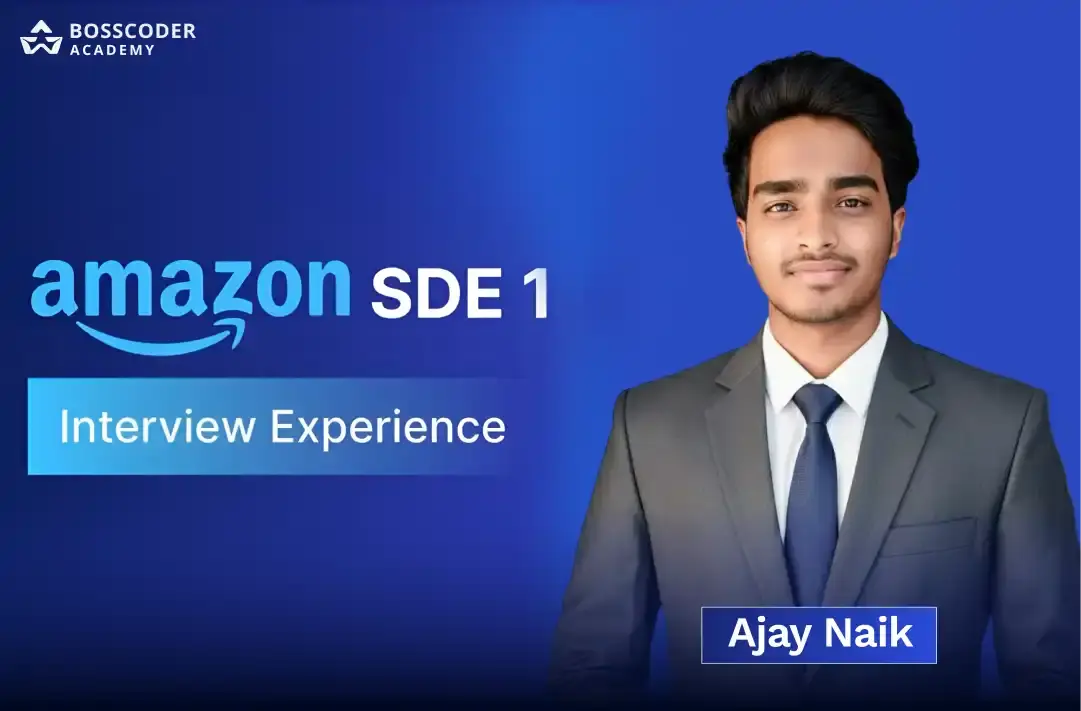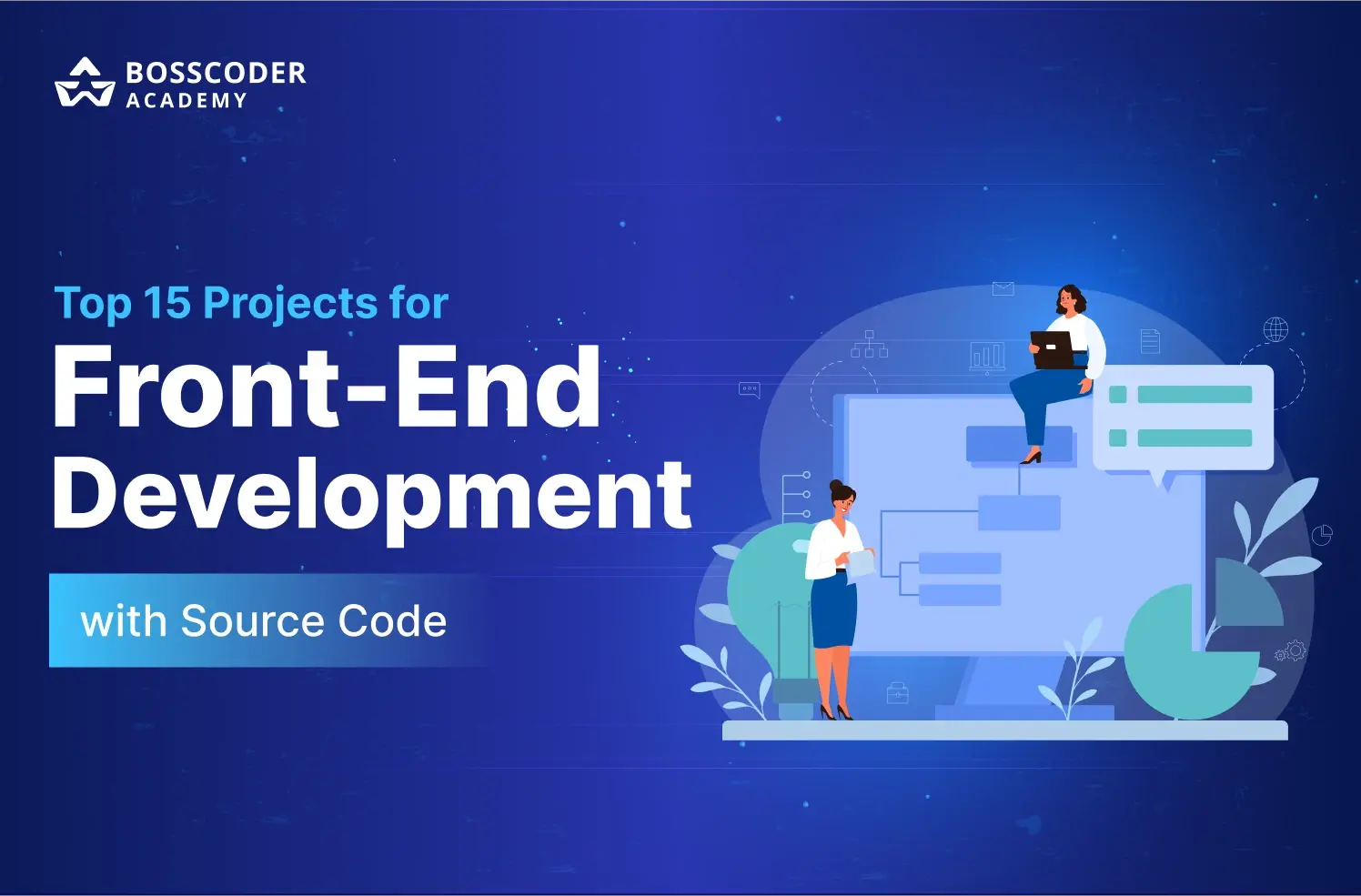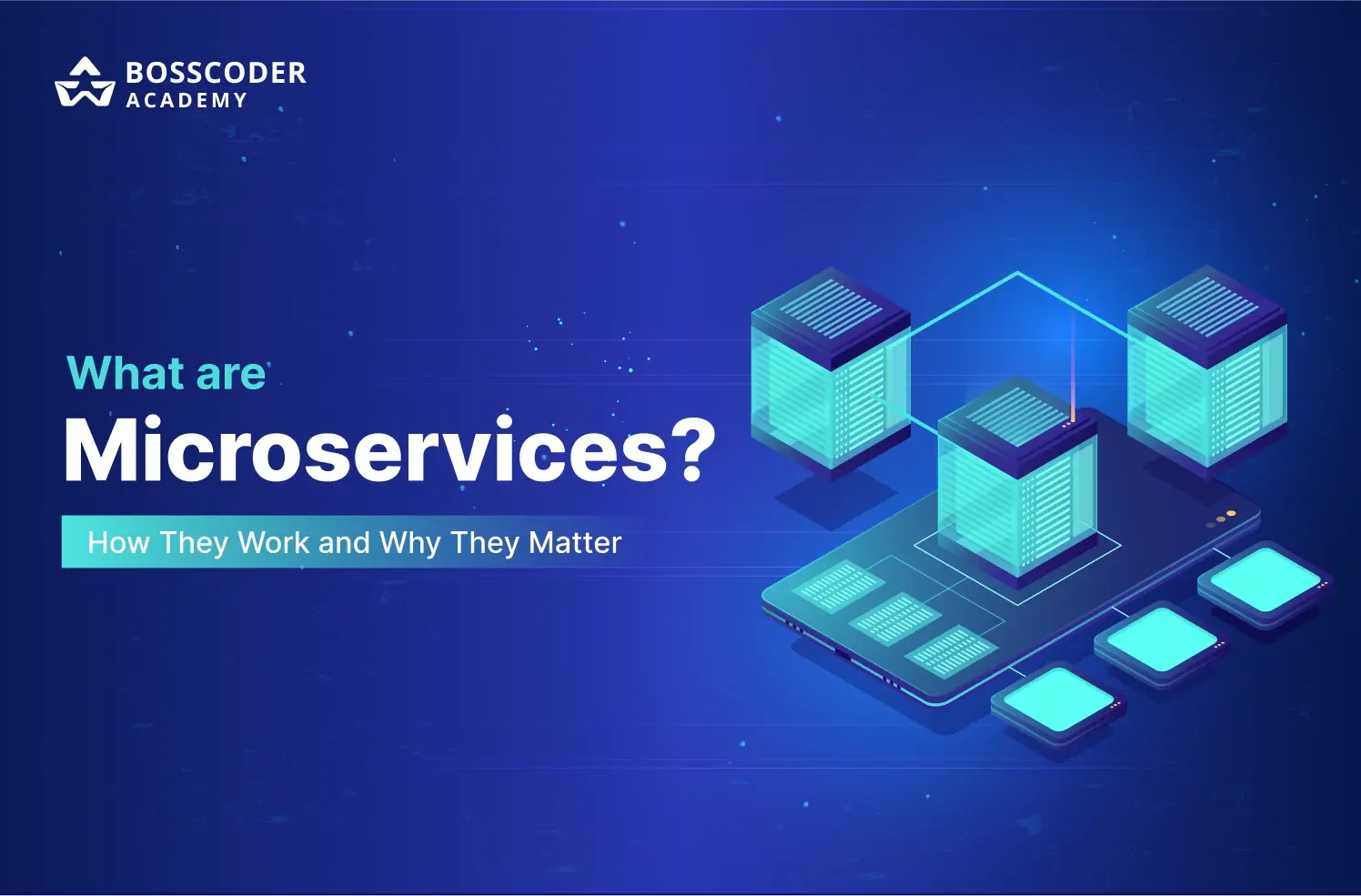Every working professional dreams of landing a job at a top product-based company — and for good reason. It’s not just about the higher salary (though that’s a big part); it’s also about building impactful products, having true ownership of your work, and growing in a tech-driven, innovation-first environment.
Companies like Google, Atlassian, Microsoft, Zomato, etc. are more than just big names. They represent opportunities to transform your career — with access to better technologies, tools, smarter teams, and faster learning. And while money is a major motivator, it’s not the only one.
In fact, switching from a service-based company to a product-based one can boost your pay by 3x–4x, or even up to 50% more than the average offer from a service company.
For example:
- SDE-1 at a Service Based Company earns around: ₹5–8 LPA;
- Whereas, SDE-1 at a top product company gets: ₹18–30 LPA
Okay! We get it, enough about Salary & Compensation. There are other factors too. Working at top PBC's give numerous other advantages too which we'll discuss later on."
Now, let’s understand everything in detail one by one.
What Are Product-Based Companies?
A product-based company operates like a chef who develops a unique dish that they present to global customers. It develops products like mobile apps, SaaS platforms, gaming engines, and e-commerce tools that it sells directly to customers. For example, Google as a Product company has Gmail, Google Pay, Google Maps, Google NotebookLM, etc. as products.
While Service-based companies function similarly to catering teams by preparing meals according to their clients’ requests.
Top product based companies in India:

Many product-based startups in India perform exciting work while actively recruiting new talent.
Locations to work:
- Bangalore: The Silicon Valley of India
- Hyderabad: A fast-rising tech hub with giants like Microsoft, Google, Amazon
- Chennai, Pune, Gurgaon: Also full of exciting product companies
One major question that comes to our mind is this:
Why Are Product-Based Companies the Dream?
We know the payscale here is massive, but honestly, this can't be the sole reason as to why almost everyone desires to switch to these companies. So, these companies stand out because of the following main benefits:
- Ownership of the work;
- Better pay, perks, and stock options;
- Creative freedom to innovate;
- Engineering teams control product development rather than performing simple instruction-based tasks;
- The company offers quick growth opportunities to people who make a meaningful impact.
We have gone through what a Product company is and what the benefits of working here are. Now, let's get into the pivotal point of the blog, i.e.,
How Do You Get into a Product-Based Company?
Alright, let me explain it as if we need to follow the process like milestones. This can be described as your career strategy plan or roadmap. We've tried to make it really simple, clear, and not that hard to follow.
1. Master the Fundamentals
Data Structures and Algorithms (DSA) are the key to your dream into any PBC.
Product-based businesses love engineers who can solve problems quickly and efficiently. These interviews test your reasoning, problem-solving, and analysis skills. Now, when it comes to DSA, don't make the common mistake that almost everyone does, i.e., get into directly solving problem without understanding the requirement of each Data structure.
How much DSA is enough?
- Solving 200-300 well-selected varied problems is enough.
- Focus on clarity, not quantity.
- Always work on a whiteboard or in a timed setting.
There's a lot more that we can write on DSA, so if you want to know more, check our blog on Complete DSA Roadmap!
We have not discussed Full-stack development in this blog anywhere, as we assume that you know that this is also important.
However, if you want to check out the complete roadmap, you can check out our blog on Full-Stack Developer Roadmap!

2. Build Real Projects
You can't become strong in anything until you have the right practical experience. We know that you're always advised to pick up projects at the end, but we would suggest you to do this hand in hand. (Obviously, this is not a strict plan)
So, if you have to start with, you can pick up:
- A weather app using APIs;
- A notes-sharing tool for your college;
- Create a habit tracker system by integrating React with Firebase services;
- A mini e-commerce site;
Pro Tip: Stick with other people who share your path in learning. Putting in small amounts of responsibility helps you maintain your focus.
Include this work on your GitHub, portfolio, and personal site. These examples demonstrate your approach to design and implementation.
3. Learn System Design Basics
You might think that this is purely for seniors. But, dear friend, you're very wrong. This is absolutely FALSE, and in fact, interviewers in top PBCs love to grind you on this System Design.
Even in L1 positions, businesses anticipate that you have some idea of the mechanics behind the thing.
Check out our blog for a detailed System Design Roadmap!
Understand these concepts:
- APIs (REST, GraphQL)
- Client-server architecture
- Databases (SQL vs NoSQL)
- Load balancing
- Caching (Redis, CDN)
- Microservices
Resources:
GitHub: System Design Primer
Course: Grokking the System Design Interview
Fun challenge: Sketch Twitter, WhatsApp, or Netflix on Notebook paper. Then watch how pros do it.
Now once your technical topics are covered, it's time to build your behavioural skills.
4. Build Communication Confidence
Interviews aren’t just about code. They’re about how you think out loud.
Practice explaining:
- Why did you choose an algorithm?
- What trade-offs did you consider?
- What would you improve?; etc.
One of the best and most useful methods to improve this is through Mock interviews with friends. However, you can also use platforms like Pramp, Interviewing.io, and Peerlist for this.
Hiring Insight: Many good coders fail because they don’t explain. Many average coders pass because they explain.
Skills, be it technical or behavioural, are good, but there's another very important thing that will help you land the interviews, and that's your Linkedin Profile & Resume.
5. Resume & LinkedIn
Keep them sharp, relevant, and searchable
Resume must-haves:
- Tailored for product roles
- Numerical impact ("Decreased load time by 40 %")
- Tech stack used
- GitHub links / live demos
If you think your resume is fine, we would recommend you to read the Software Engineer Resume Tips and make sure resume is top-notch!
LinkedIn Tips:
- Write strong headline (e.g., "Aspiring SDE | 4 Projects Built | DSA Junkie")
- Share your learning journey
- Network with people in top product-based companies in Bangalore, Hyderabad, etc.
SEO Trick: Use keywords such as "React", "System Design", "REST APIs", "Java", and “SDE” in your profile.
6. Target the Right Companies
Instead of shooting in the dark, apply everywhere and build a target list.
Start with:
- Top 100 Product-Based company in India
- Create a list of 100+ companies (Startup, Unicorn and MNC)
- Product-based companies in Hyderabad are hiring juniors
- Best IT product companies in India
Sort by:
- Tech stack
- Company culture
- Career growth
- Office location (if hybrid)
Use Glassdoor, AmbitionBox, and Blind for inside info.
Create a spreadsheet. Track your progress.
7. Network Like Your Job Depends on It
Because… it kind of does. Don't just think making connections with the professionals from your dream company is enough, but it's not. So, don't think about just making connections with the right professionals; instead, try to grow your connections as much as possible ('Coz you don't know which connection can be fruitful). For this, you can:
- Join and attend technology-related events (including the ones that are done online).
- Join Discord/Slack/Telegram coding communities
- DM engineers on LinkedIn — not just asking for the contacts but asking for advice
Message template: “Hi [Name], I’m a CS grad actively working on my DSA and projects. I admire your journey at [Company]. Would love to know what helped you crack it.”
Many people are happy to help. Be polite. Be persistent.
8. Keep Applying, Keep Growing
Every rejection is redirection. Don’t take it personally.
With each mock interview, resume rewrite, or DM, the process builds up.
Where to apply:
- Company websites (careers page)
- AngelList (for the product-based startups in India)
- LinkedIn Jobs
- Hirect, Instahyre, Cutshort
One of the best to get interviews are through your NETWORKS too. so, never underestimate this!
Remember to follow recruiters from product-based companies of your choice on LinkedIn.
Bonus: Timeline to Crack Everything
- Month 1-2: DSA daily + 1 project + LinkedIn optimization
- Month 3-4: Add another project, basis of system design, and start to network
- Month 5-6: Mock interviews + targeted applications + resume update.
Continue to practice, and you will notice the difference.
6-Month Roadmap to Get a Job in a Product-Based Company
Here is a simple and highly effective plan that would take six months of preparation and can be implemented using Java or any other language of your choice. This process includes DSA, system design, projects, and mock interviews to prepare you for an actual interview round!

Conclusion
It’s easy to feel stuck. In particular, if you’re in a service-based based company, you may find repetitive work uninteresting or get no response from popular agencies.
But here’s the truth:
You know, Freshers from non-IIT colleges or even from non-tier 1 cities or even non-CS background, they get these roles frequently.
What sets them apart?
- Focus
- Consistency
- Curiosity
- Community
Final Word: The final thing you should not forget is that you don’t need a high I.Q. All you have to do is continually search for opportunities and try to acquire new knowledge at least every day.
So, if you dream of crack product-based interviews faster. Learn DSA, System Design, & Projects with Bosscoder Academy.
Frequently Asked Questions
Q1. How do I switch from a service-based company to a product-based company?
Go through DSA, build projects, learn system design fundamentals, and enhance communication skills. Build a strong resume, also apply to job postings that are open presently by companies and dedicated networking.
Q2. How difficult is it to get into a product based company?
Not if you have a right plan. With 5–6 months of directed learning of the right skills and projects, it is achievable — even without a prestigious degree or background.
Q3. Which is better service-based or product-based company?
Product-based companies more often pay more, good tech, ownership in work, faster growth. But Service business can provide more job stability as well as work-life balance.
Q1. What is the salary difference between service-based and product-based companies?
SDE-1 in a Service Based Company ₹5–₹8 LPA, but same role in a product company will pay ₹18–₹30 lakh — 3x to 4x increase.









